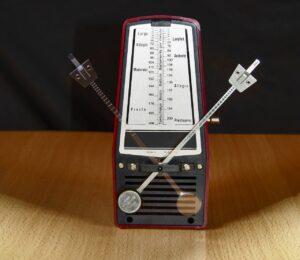Estimated reading time 2 minutes
Table of Contents
Introduction
Do you need to know how pronouns work? How do you unlock the power in these small yet potent words? These words will have a colossal impact on your writing, poetry, or songwriting. The magic happens when you substitute them for other words, making it so your writing becomes concise and (by extension) less wordy. Keep reading What Does Pronoun Mean – Can Pronouns Keep My Writing Focused? to find out how they work.
This article uses literary terms. For definitions, see the Glossary at the end of the post.
![music of words in songwriting, (i.e., the music of the words) impacts your songwriting, music of words into your songwriting – writing lyrics – jumpstart the creativity in your songwriting – Pronoun Definition & Meaning: Unlock Your Knowledge [Video] music of words in songwriting, (i.e., the music of the words) impacts your songwriting, music of words into your songwriting - writing lyrics - jumpstart the creativity in your songwriting - Pronoun Definition & Meaning: Unlock Your Knowledge [Video]](https://successmusicstudio.com/wp-content/uploads/elementor/thumbs/write-notebook-pen-4491416-pfbdir1ozmnw07zvq5y8eao9tqgvohzqmwx8g8txga.jpg)
What Does Pronoun Mean: How Do You Define Them?
“What does pronoun mean?” Pronouns are a class of words that act as replacements for nouns and noun phrases. They permit us to talk about people, places, and things without having to say the exact noun again.
Personal pronouns mostly take the place of the names of individuals. The point of view, case, and plural forms further influence which word you’d use.
Subject:
- First person singular: I
- Second person singular: you
- Third person singular: he, she, it
- First person plural: we
- Second person plural: you
- Third person plural: they
Object:
- First person singular: me
- Second person singular: you
- Third person singular: him, her, it
- First person plural: us
- Second person plural: you
- Third person plural: them
Possessive:
- First person singular: mine
- Second person singular: yours
- Third person singular: his, hers, its
- First person plural: ours
- Second person plural: yours
- Third person plural: theirs
To see them in action, watch the video below.
A Popular Pronouns Video
What Does Pronoun Mean: What Other Types Are There?
“What does pronoun mean?” There are lots of types, so let’s dive in:
- Demonstrative: These words point to referenced objects, people, or places (i.e., that, this, those, these).
- Indefinite: These words get used for general groups of objects, places, or people (i.e., nobody, nothing, nowhere, neither, none, everybody, everyone, everything, everywhere, both, others, all, something, someone, somebody, somewhere, anybody, anyone, anything, whichever, anywhere, wherever, either).
- Interrogative: Use these words when asking a question (i.e., what, who, whose, whom).
- Possessive: Use these when somebody owns something (i.e., my, your, his, hers, our, their, mine, yours, its, ours, theirs).
- Reflexive: These words point back to the noun itself (i.e., himself, herself, itself, ourselves, yourself, yourselves, myself, themselves, oneself).
- Relative: These words begin clauses that can’t stand alone because they aren’t complete thoughts (i.e., which, that, who, whom).
- Antecedents: You must make it clear which noun a pronoun points back to or you audience will get confused.
These pronouns are also impacted by case and plural forms.
What Does Pronoun Mean: Final Thoughts
“What does pronoun mean?” Here’s a summary:
- They take the place of the words for people, places, and things.
- Which ones you’ll use will be affected by the point of view, case, and plural forms.
- They are important for effective writing because they help us steer clear of unnecessary repetition.
Have fun writing!
Related Posts
- Noun Definition & Meaning (Video Noun Examples & Types of Nouns)
- Alliteration Meaning: Examples of Alliteration in Poetry and Songs
- 12 Simile Examples That Aren’t Cliches (How to Write Them)
- Is There Any Method to Help with Writing Descriptions?
- Writing Well Crafted Songs
© 2024 Geoffrey Keith
Join me for online or in-person lessons today!
Glossary
What Exactly Does Onomatopoeia Mean in Writing
Do you want to know what in the world the odd sounding word onomatopoeia means? Do you need help learning how to write them? We’ll define the word and have examples from writing, songwriting, and poetry. Keep reading “What Exactly Does Onomatopoeia Mean in Writing” to learn what it is and how it’s used. Estimated reading time 2 minutes.
Read MorePlaying the Piano with Color Coded Rhythm, Fingering, and Notes
Can’t read piano music? (Or does your child have difficulty reading music?) Color coded notes and rhythms can help! Click to learn about playing the piano with color coded rhythm, fingering, and notes. Estimated reading time 3 minutes.
Read MoreHow to Graduate from the Color Coded Music Score: Part 3
Do your students get confused by space note D at the bottom of the treble staff? Or do they have a problem with space note B on the top of the bass staff? Read more to learn how to switch from color coded notes to special mnemonics, allowing students to graduate from the color coded music score. Estimated reading time 4 minutes.
Read MoreWhat’s a Good Alternative to a Metronome for Practice Sessions?
Teachers, do you have students who can’t use a metronome and can’t keep a steady beat? We all know how valuable metronome practice can be. However, it can be tricky for students to sync with a metronome, and many students flat out refuse to work with them. Click to answer the question, “What’s a good alternative to a metronome for practice sessions?” Estimated reading time 2 minutes.
Read More
![Pronoun Definition & Meaning - Unlocking Your Knowledge [Video] - Vintage Typewriter](https://successmusicstudio.com/wp-content/uploads/2024/06/Pronoun-Definition-Meaning-Unlocking-Your-Knowledge-Video-Vintage-Typewriter-1024x680.jpg)



